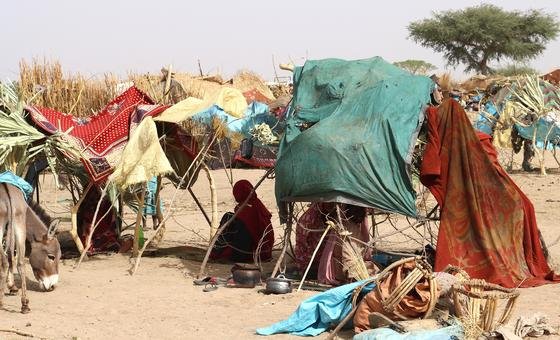The United Nations Refugee Agency (UNHCR) reports a 50 percent increase in conflict-related sexual violence this year compared to 2023, with the number of verified cases at 95. Percentage of women and girls.
However, these numbers “represent a small portion of the reality” because many cases go unreported.
Deprived of justice
“Many remote areas are closed to humanitarian access or lack resources and assistance,” UN refugee agency spokeswoman Shabia Mantu told reporters in Geneva on Friday.
“There is also limited access to justice and victims fear reprisals and social marginalization.”
The spokeswoman said colleagues working in conflict and war situations continue to receive reports of victims experiencing brutal violence, torture, sexual exploitation, sexual abuse and other horrific acts as weapons of war.
For example, in the Democratic Republic of the Congo (DRC), women and girls’ bodies have become an extension of the “battlefield” amid cyclical violence and increasing insecurity. A similar situation prevails at displacement sites.
Additionally, incidents of gender-based violence have increased this year, with rape being the highest.
“Chad women have been raped while fleeing war in Sudan,” spokeswoman Shabia Mantu said.
“Increasing restrictions on women and girls in Afghanistan, high rates of domestic violence at the hands of family members, and overall deteriorating economic conditions are exacerbating the mental health crisis.
UNHCR’s partner agencies have reported an increase in the number of patients seeking help
Hazards during displacement and migration
Women refugees and migrants en route to the Mediterranean continue to complain of sexual violence and exploitation, slavery and human trafficking. Humanitarian aid workers estimate that 90 percent of women are rape victims.
Meanwhile, victims of sexual violence who flee to neighboring countries often live in precarious conditions, as they may face additional risks of gender-based violence during their displacement and delays in services that may be limited.
Forcefully displaced women and girls face a high risk of war and conflict-related sexual violence, as well as intimate partner violence, spokeswoman Shabia Mantu said.
Additionally, intersectional forms of discrimination also increase their vulnerability, including women’s and girls’ disabilities, women’s poverty, gender identity, gender expression, and specific sexual characteristics of girls and women.
Increased support is required
“Early and effective measures to prevent gender-based violence against women and girls affected by conflict and war are life-saving, but these measures need to be adequately funded,” said UNHCR spokesperson Shabia Mantu. .
“For example, for the six major regional refugee assistance projects – for refugees from the DRC, Afghanistan, Sudan, Ukraine, South Sudan and Syria, covering humanitarian needs and helping victims of gender-based violence throughout the year, only 28 percent of the $236 million appealed done
The UN refugee agency is highlighting the issue during 16 days of activism against gender-based violence. It is an annual global campaign, which runs from November 25 to December 10.
UNHCR fears that without adequate funding, millions of forcibly displaced women and girls will not be able to access critical services in the coming years.

